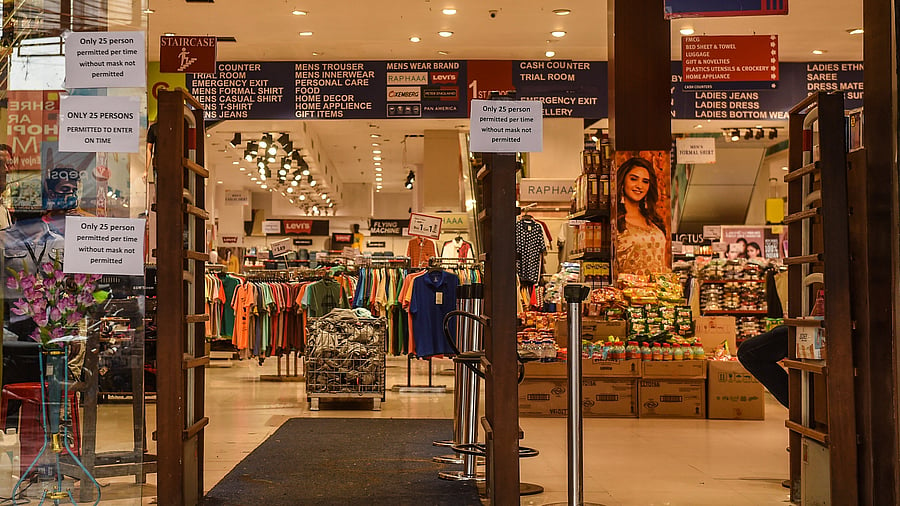
A clothing store in Kolkata. (For representation)
Credit: PTI File Photo
Bengaluru: Tata-owned Trent has managed to play its cards right when it comes to capturing a majority of market share especially with several of its offerings, catering to customers across price points.
The Tata group’s retail arm has three major brands under its umbrella - Zara (in a joint venture with Inditex), Westside and Zudio. Among these, Zudio has emerged as the frontrunner, given its low cost yet trendy appeal in the apparel category.
The success of the brick and mortar stores comes at a time when Indians have been inclining more towards booming e-commerce and quick commerce companies for shopping, including apparel.
Experts believe that a strong in-house supply chain coupled with learning from its global brand Zara has helped it to capture a major chunk of the market.
“Trent’s business model was to focus majorly on their private labels which they did successfully with Westside, and then Zudio which is 100 per cent in-house which helps you control the cost and design the latest trends,” said Preeyam Tolia, Equity Research Analyst - FMCG & Retail, Axis Securities.
The other two brands - Westside and Zara - cater to a premium customer base, spread across clothes, beauty and even footwear. However, the latter targets younger audiences with disposable income. A model that allows franchisees to own the business while the company manages the day-to-day operations has helped the Tata-run business to expand its stores in several cities.
Zudio opened its first independent store in the financial year 2018 while Westside was launched in 1998. As of June 2024, the company had 228 Westside stores and 559 Zudio stores. The latter contributes more than a third to Trent’s revenue.
“Until the time Trent’s business model didn't stabilise in one price point, they didn't go to the next price point. They also made sure that each of the stores is profitable, and then they built on the next store,” said Ankur Bisen, Senior Partner and Head - Consumer, Food & Retail, Technopak Advisors.
Analysts believe that the company got the strategy right in private labels as 80% of the products in their stores are owned by them. This also gives the company an upper hand in maintaining a low cost and changing its inventory every 15 days.
“I think they've really invested in bigger store sizes in the fast fashion segment. And in the non-apparel segment, there's a potential for the margins being premium and higher throughput per store,” said Karan Taurani, senior vice president, Elara Capital.
This is in contrast to its competitors, including Reliance Retail and Aditya Birla Fashion and Retail Limited (ABFRL) who have banked their apparel business strategy on acquiring brands.
Ambani launched Yousta, with all of its products below Rs 1,000, pitching it directly against Zudio. However, it hasn’t captured much attention yet as the company cited ‘tepid discretionary demand’ for fashion and lifestyle.
The urban slowdown has not left Zudio untouched. Although Trent had reported solid revenue and profit growth in the latest July-September quarter, it fell short of analysts' 'elevated' expectations. Trent saw a 47% rise in net profit to Rs 335 crore, falling short of the Rs 431 crore estimate of analysts polled by Bloomberg.
Analysts remain mixed on the view of urban slowdown impacting fast fashion brands’ margins. While some believe that it is temporary and will have a miniscule impact, others are of the view that it will continue being a headwind.
“Fall in total revenue of major players in retail will continue as the middle class remains in a crunch, job losses looming ahead and a fair bit of people wanting to be responsible when it comes to consumption. This is going to bite particularly into the fast fashion category,” said Harish Bijoor, brand strategist.